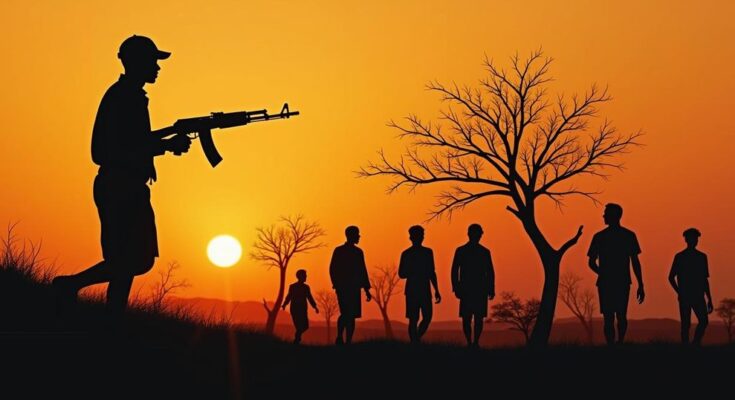In August 2020, a military coup in Mali initiated a trend of instability across West and Central Africa, resulting in multiple coup attempts in surrounding nations. The leaders of these takeovers promise security but often exacerbate violence and human rights violations. As former colonial influences wane, the region is witnessing a shift towards alliances with Russia, further complicating the political landscape. The failure of ECOWAS to impose significant deterrents against coups enabled this culture of impunity, threatening the future of governance in the region.
Since the military coup in Mali in August 2020, the West African region has experienced a concerning trend of political instability characterized by numerous military takeovers. This coup, which saw the overthrow of President Aboubakar Keita following protests against his administration, marked a pivotal moment signaling a departure from the political stability that had prevailed in Mali for almost a decade before. In the ensuing years, over ten coup attempts have been recorded in Central and West African countries, revealing a ripple effect that suggests a regional decline in adherence to civilian governance. Colonel Assimi Goita, the leader of the initial coup, even escalated military rule by extending the transition period from 2022 to 2027, highlighting the shifting dynamics of power within the country. The succession of coups in West Africa since Mali’s takeover includes notable events in Guinea, Burkina Faso, and Niger, where military leaders have seized power amid crises of governance and violence attributed to extremist groups. Each of these coups reflects a growing disenchantment with civilian governments and indicates significant shifts in political loyalties. Furthermore, the role of France as a former colonial power has come under scrutiny, leading to heightened sentiments against French military presence, with the military governments in Mali, Burkina Faso, and Niger pivoting towards Russia for support. Simultaneously, the significant increase in violence and insecurity in the Sahel region has drawn attention to the failures of the military regimes. While these leaders promised security improvements, the situation has only worsened, prompting critiques regarding the human rights violations stemming from both governmental and mercenary actions. The safety net that organizations like the Economic Community of West African States (ECOWAS) once provided has arguably weakened, as failure to impose punitive measures on coup leaders has led to a culture of impunity, exacerbating the cycle of instability across the region.
In August 2020, Mali witnessed a military coup that dethroned President Aboubakar Keita amid widespread protests and accusations of government corruption and inability to manage armed insurgencies. This event represented both a culmination of turmoil within Mali and the beginning of a broader instability trend across West and Central Africa, with subsequent coups occurring in several neighboring states. As coups mushroomed in the region, they indicated a shift back towards military rule, reminiscent of the post-colonial rebellions of the late 20th century. This period has also seen increasing resentment towards former colonial powers, especially France, which has historically had a significant military presence in the region. In seeking new alliances, several military governments have turned to Russia for support, in a move that raises concerns regarding the future of governance and human rights in the Sahel region.
The coup in Mali has instigated a worrying trend of military takeovers throughout West Africa, unraveling years of political stability and raising concerns about rising violence and governance failures. As countries grapple with internal security challenges, the increasing reliance on foreign powers, such as Russia, coupled with the ongoing dysfunction of regional bodies like ECOWAS, suggests an uncertain future for the region. Coups have become a recurring theme in West Africa, and unless preventive measures and strong deterrents are reinforced, stability may remain elusive.
Original Source: www.aljazeera.com




